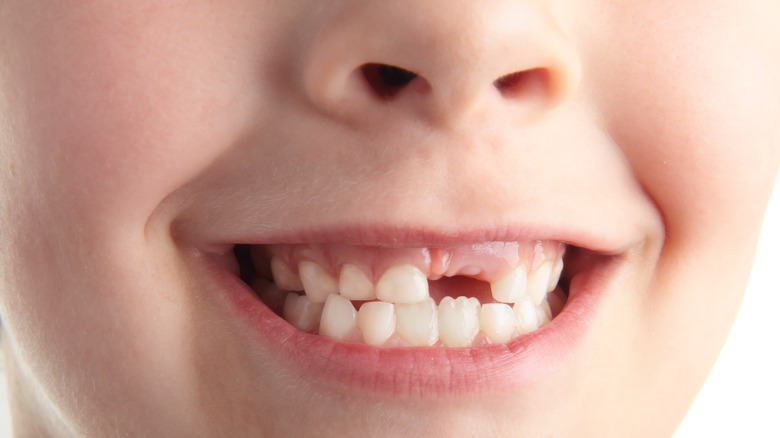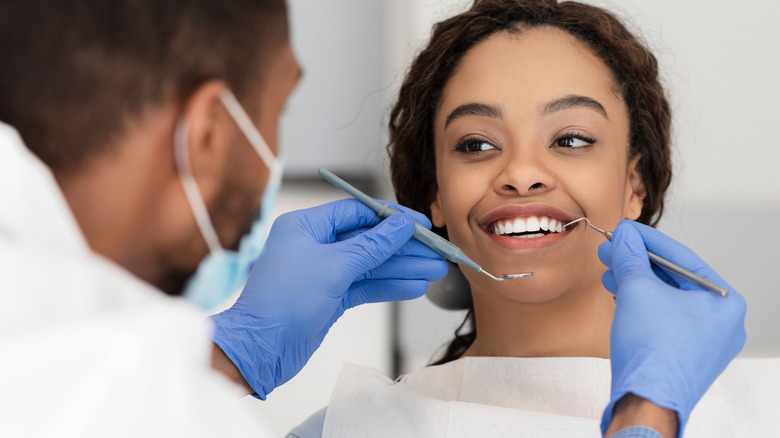Why Do We Have 2 Sets Of Teeth?
Among the many amazing aspects of the human body, our teeth are easy to overlook, yet they are vital. We know we can't live without them (not very easily, anyway), and taking the time to clean and floss our pearly whites each day is very important — but why do we start with 20 teeth as little kids and end up with 32 as adults? Why do we have 2 sets of teeth, anyway?
Tooth development plays a crucial role in a child's ability to eat. It's also critical for the proper growth and shaping of the jawline and is essential for speech development (via Tandara Dental). Unlike our hair and nails, teeth don't actually grow or become larger over time. The 20 baby (or deciduous) teeth that make up the first set are the perfect size for small jaws.
While each child will follow their own unique timeline, babies generally begin to "show" teeth at around 6 months. They continue to gain teeth until all 20 of their first set are in place by around age 3. While you might not see the first tooth until 6 months, tooth development actually starts much earlier.
Regular dental checkups are a vital part of oral health
"Tooth development begins long before your first tooth becomes visible," Dr. Shantanu Lal, doctor of dental surgery and associate professor of dental medicine at Columbia University Medical Center, explained to Everyday Health. "For example, a baby's first tooth appears at around six months, but [the] development of those teeth actually begins during the early second trimester of pregnancy."
Between the ages of 6 and 12, most children will gradually lose their entire first set of teeth and replace them with permanent ones. Throughout these years, the jaw has also grown to accommodate the larger and numerous permanent teeth (via Healthline). Some dentists view the first set of baby teeth as a "practice" set — a child has the chance to learn to take good care of their teeth before getting their second and final set. Oral health is often associated with overall health, and taking care of your teeth should be a priority, not an afterthought. "For good dental health, brush and floss your teeth regularly, don't smoke, eat a healthy diet, and see your dentist regularly for dental cleanings and checkups," Dr. Lal added while speaking to Everyday Health.


